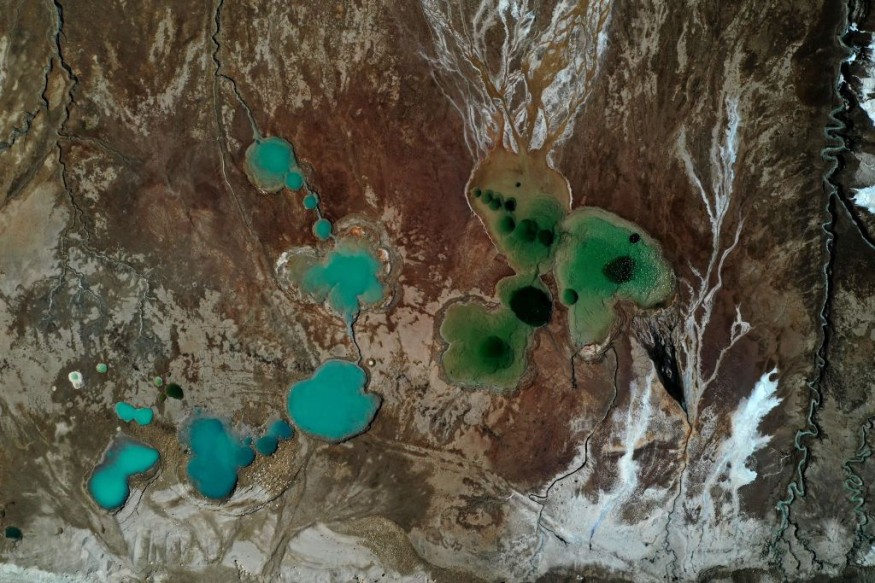During the Ein Gedi spa's golden era in 1960s, visitors can relax in warm baths before plunging into the salty Dead Sea; the very same coastline that is now dotted with sinkholes.
The Dead Sea a remarkable vast area of water in the desert surrounded by cliff edges to the east and west, has lost a quarter of its total area as of 1960.
Annually, clear waters fade away around a meter long, revealing a lunar scenery lightened by seawater and perforated with massive holes.
In the future, "visitors could be fortunate to get a stream of water here, where individuals can place their toes in," laments Alison Ron, an Ein Gedi citizen who used to operate the spa.
"However, there will be several holes in the ground."
The Majestic Dead Sea Depressions

The sinkholes can reach depths of up to 10 meters, which is proof of the ocean water's downsizing. Vanishing seawater leaves behind buried salt deposits.
The salt spots are dissolved as runoff from regular intervals flood events filters down into the soil surface. The property above breaks down due to a lack of assistance.
The approximately three kilometers of rocky sand that now separates the Ein Gedi thermal tubs from the coast are studded with holes and crevices.
In north, an entire traveler intricate has become a barren wasteland, defaced by sinkholes and surrounded by fence posts. The pavement has been ripped up, the street lamps have been knocked over, and the date planting has been forgotten.
According to Ittai Gavrieli of the Israel Geological Academy, there are large number of depressions along the Dead Sea's coastlines in Jordan, Israel, and the inhabited West Bank.
Which represent human legislation, and has effectively halted the stream of fluid into Dead Sea.
Nutrients have been retrieved from saltwater by energy companies for Israel and Jordan have rerouted the Jordan River's waterways for agricultural and drinking purposes.
Also read : Human's Irresponsibilities Cause Alarming Decline in North Atlantic Right Whale Population
Stabilizing the Dead Sea
According to Gavrieli, the Israel Geological Institute is supervising sinkhole structure from space, but is not a precise science. He described them as threatening but also majestic.
Far too dangerous, responds Gidon Bromberg, Israeli director of the NGO EcoPeace, who sees the crater as humanity's retaliation for civilization's improper behavior.
"We will never be able to restore the Dead Sea to its glorious past," he stated. "However, we insist on stabilizing it."
His organization, that is made up of Jordanians, Palestinians, and Israelis, proponents for enhanced seawater desalination from the Mediterranean in order to ease tension on the Sea of Galilee and the River Jordan, which could swing back to the Dead Sea.
When contacted by AFP, a press officer for Jordan's water ministry provided no precise solution to the conflict. Rather, he stated that the funding society must perform a "crucial function" in generating interest in "finding remedies to the Dead Sea dilemma."
Jordan neglected a lengthy proposal to construct a waterway with Israel and the Palestinians to transport water from the Red Sea to the Dead Sea in June.
So, if the waterway was constructed, it would not have been enough to save the lake, according to hydrologist Eran Halfi of the Dead Sea-Arava Science Center.
"The Dead Sea is losing 1,000,000,000 cubic meters annually, and it was meant to bring 200 million cubic meters," he explained. "This would delay but not stop the decline."
According to climate researchers, its downturn is unavoidable for at least the very next 100 years. Depressions will continue to grow over the next couple of centuries.
The lake, on the other hand, may reach an equilibrium since as its ground declines, the water becomes saltier and evaporation halts.
© 2025 NatureWorldNews.com All rights reserved. Do not reproduce without permission.





